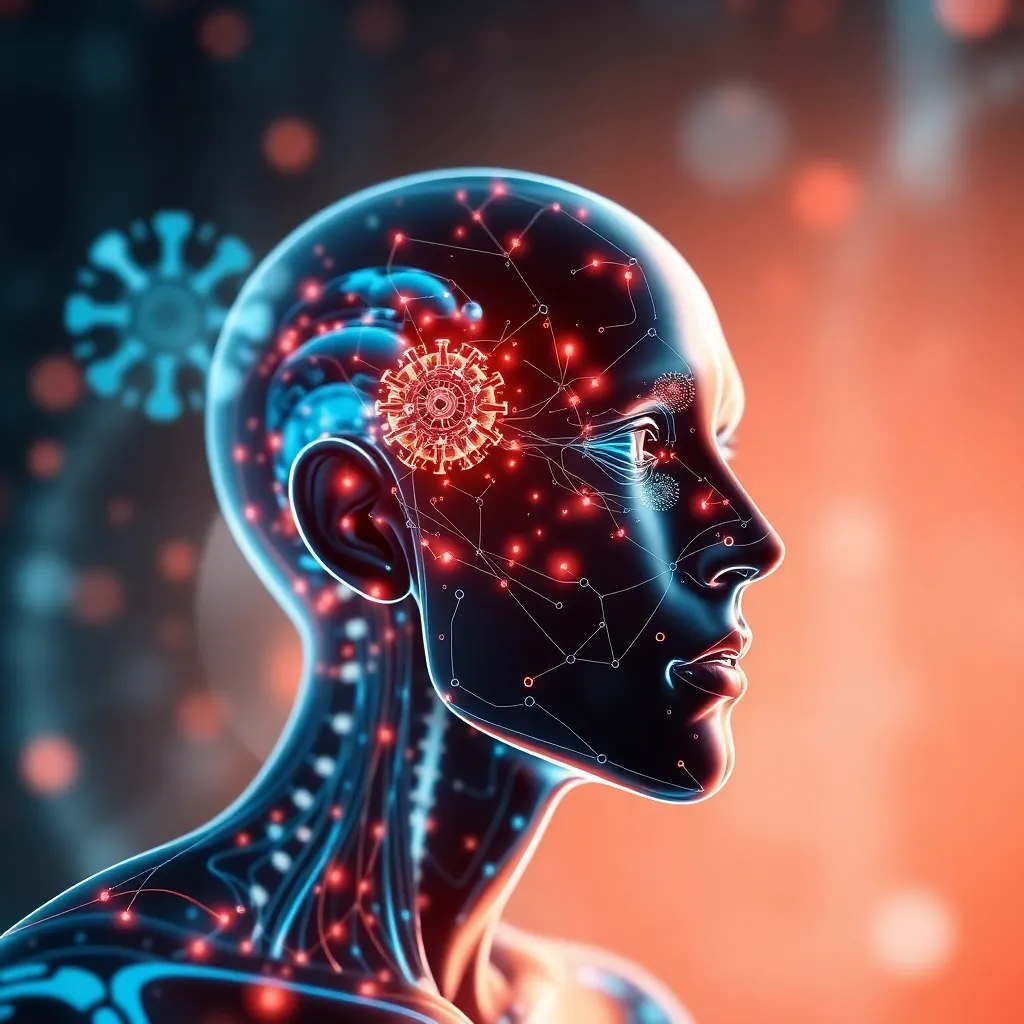
The use of AI in biotech has recently gained popularity.The biotech industry is rethinking its processes with the help of AL and ML technology to provide more reliable results in less time.Whether in the pharmaceutical, healthcare, animal husbandry, or agricultural sectors, artificial intelligence and biotechnology provide the way for more innovations and developments.
Biotechnology is the application of technology to biology. Pharmaceutical corporations are the dominant participants in this business, but others are coming up fast. Statistics show that by 2025, the pharmaceutical industry will have spent almost $3 billion on AI drug research. According to 82% of industry experts, the industry would keep transforming its processes beyond the COVID-19 epidemic.
How Is AI Impacting The Biotechnology Industry?
These days, the biotech sector’s progress depends on big data, AI, and ML technologies. According to several academics and top-level executives of major biotech and pharmaceutical businesses, artificial intelligence (AI) in biotechnology will revolutionize the field, provide value, and be appropriate for its intended application by 2023.
The use of AI in biotechnology extends beyond data flow organization and repetitive work automation. Research, daily tasks, data analytics, medication production, and many more areas can benefit from artificial intelligence. It accelerates the process by helping human researchers handle massive datasets quickly and accurately.
AI In Drug Discovery:
The use of AI in drug discovery is among the biotech industry’s most promising uses. To find possible medication candidates, forecast their efficacy, and even recommend the most efficient ways to synthesize them, artificial intelligence (AI) systems can evaluate enormous volumes of data. Humans would need years to finish this procedure, while AI can accomplish it in a fraction of that time.
Diagnosis And Treatment Of Mental Health Illnesses:
Predicting mental health disorders like depression and addiction is a high-funded field of pharmacological research that puzzles experts. Latest AI developments have demonstrated the potential of preventative medicine to enable rapid response by medical professionals and researchers.
An artificial intelligence software that analyzes the brain waves of depressed patients to choose the most effective antidepressant treatments was recently revealed by Dr Leanne Williams of Stanford University. Further, AI is already being used to track addicts’ patterns of behavior to gauge their progress in recovery and predict when they are most likely to relapse, allowing medical professionals and researchers to step in and provide assistance.
Diagnosing and treating mental health diseases can be challenging for a few reasons, not the least of which is the fact that every patient is unique, and therefore, it can be challenging to ascertain the most effective type of individualized therapy. For the advancement of customized medicine, artificial intelligence provides a novel approach. Artificial intelligence’s capacity to learn from its errors enables it to get more powerful and precise as it gains experience. To intervene before it is too late, it is necessary to be able to recognize the signs of mental disease.
Creating 3D Protein Structures:
One of the four macromolecules needed for life is protein. They are engaged in creating antibodies for our immune systems; they are messengers who help with tissue healing and more. Protein structure research has advanced, with X-ray crystallography and nuclear magnetic resonance identifying 187,000 structures. However, new approaches are still needed for determining the structures of several proteins whose structures remain uncertain, despite recent advancements.
British researchers have just developed AlphaFold, an artificial intelligence (AI) machine learning platform, to predict protein structure and create 3D protein models using scientists’ existing data. Already precise and occurring at a fraction of the time earlier techniques would demand is this technology. AI will speed up the process of discovering new proteins that may be used as drug targets, which will greatly improve our ability to treat life-threatening illnesses like cystic fibrosis and muscular dystrophy.
The Identification Of Gene Coding:
With the use of machine learning, biotech researchers may construct robust models for the study and comprehension of human genetics. Utilizing next-gen technologies, biotech companies can sequence genes more quickly and develop a replacement for homology-based sequence analysis.
CRISPR, which stands for clustered regularly interspaced short palindromic repeats, is a gene-editing tool that allows for the selective modification of genetic material. By doing so, researchers can isolate the DNS from disease-causing bacteriophages and eradicate them. Personalized treatment that considers each patient’s unique genome is another potential use of this technology. When it comes to diagnosing and treating inherited disorders, this has the potential to revolutionize the way we do things.
AI Lab Assistants:
The biotech industry is also making use of AI to streamline repetitive processes. Applications powered by aI are taking on the role of laboratory assistants, doing sophisticated tasks like data analytics and backend operations. The open-source, quick, and accurate big data analytics platform enables users to find patterns in datasets by utilizing its statistical models. Although the firm serves a wide range of industries, other AI platforms focus only on the health, biotech, and pharmaceutical sectors.
The usage of robotic gadgets in research centers, healthcare facilities, and hospitals is another way artificial intelligence (AI) is helping in the lab. Even though the biotech sector is currently investigating this, robotic helpers will likely play a significant part soon.
Conclusion:
The future of biotech is bright, thanks to AI’s potential to revolutionize medication discovery and therapy development. In the future, thanks to AI, we may anticipate faster illness detection, more effective medications, and therapies tailored to the specific needs of each patient.
The application of AI in biotechnology is opening new avenues for its potential use in sectors like pharmaceuticals, food production, and manufacturing. The biotech industry offers a lot ofuses for ai, including the automation of repetitive operations and the acceleration of the discovery phase.
Biotech businesses now have the opportunity to adopt AI technology and boost their efficiency. Several biotech companies are teaming up with AI service providers to rapidly and efficiently begin their digital transformation.
Leave a Reply